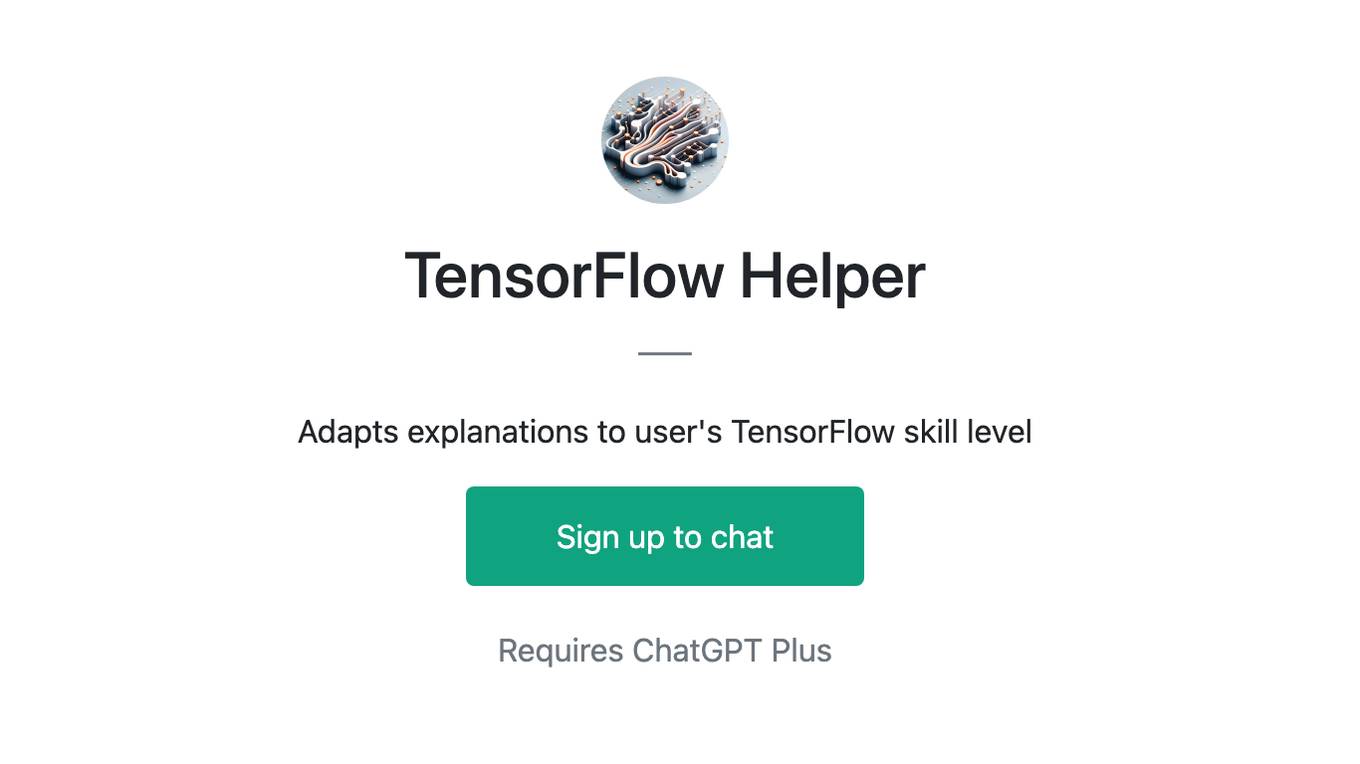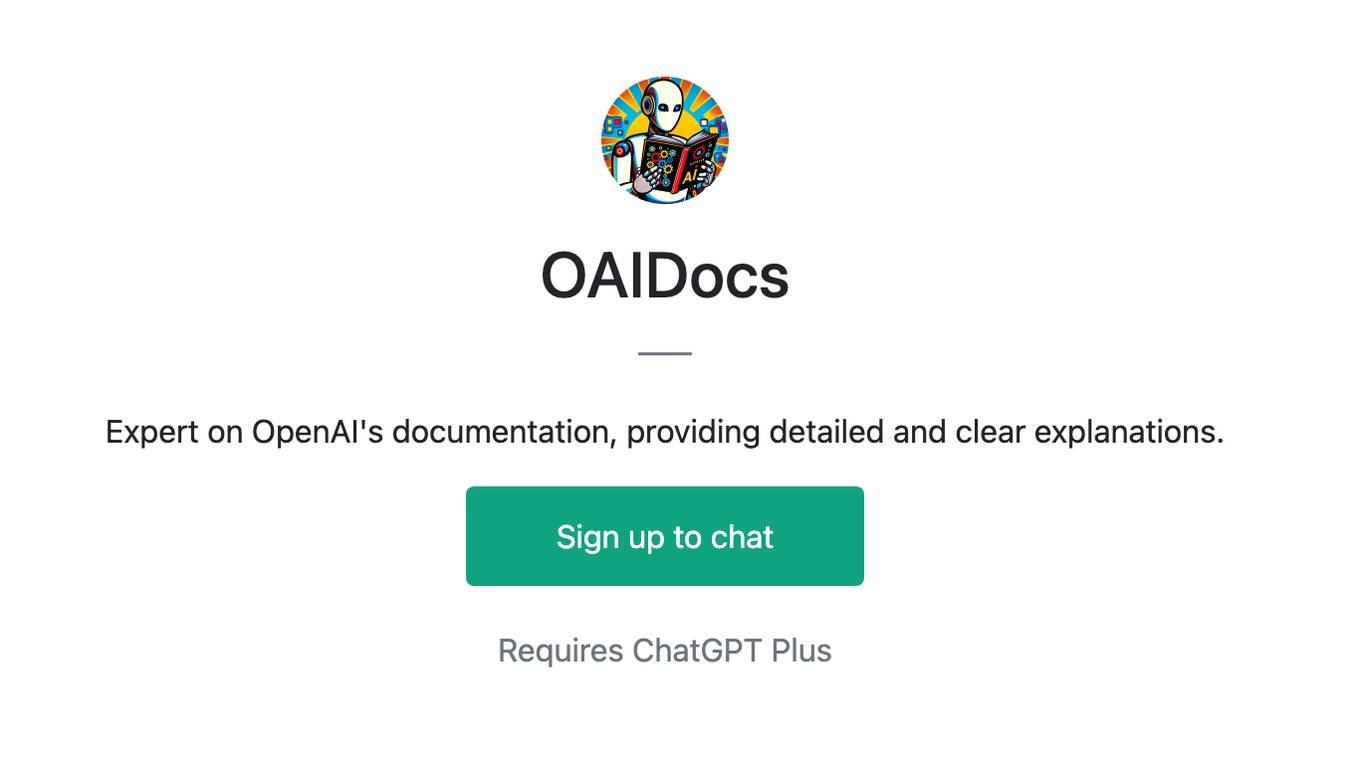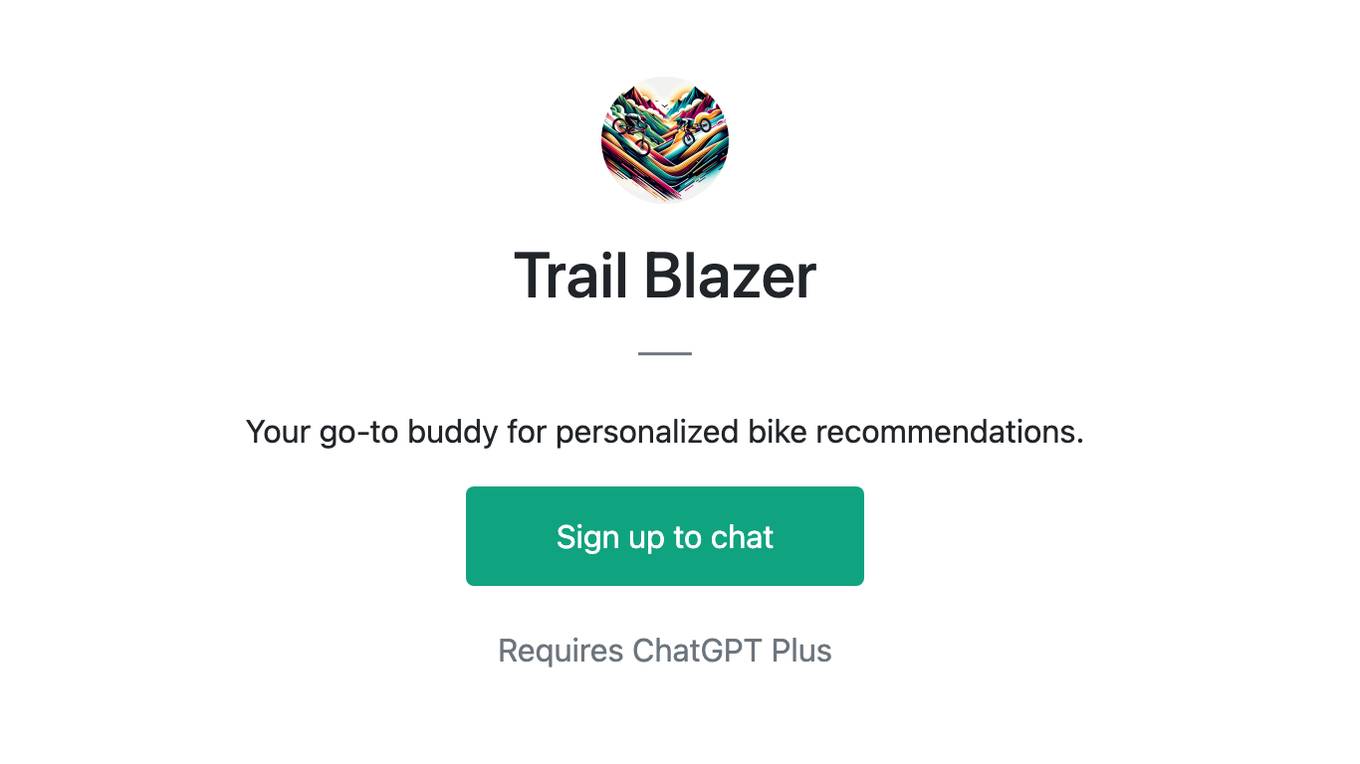Best AI tools for< Trait Exploration >
20 - AI tool Sites
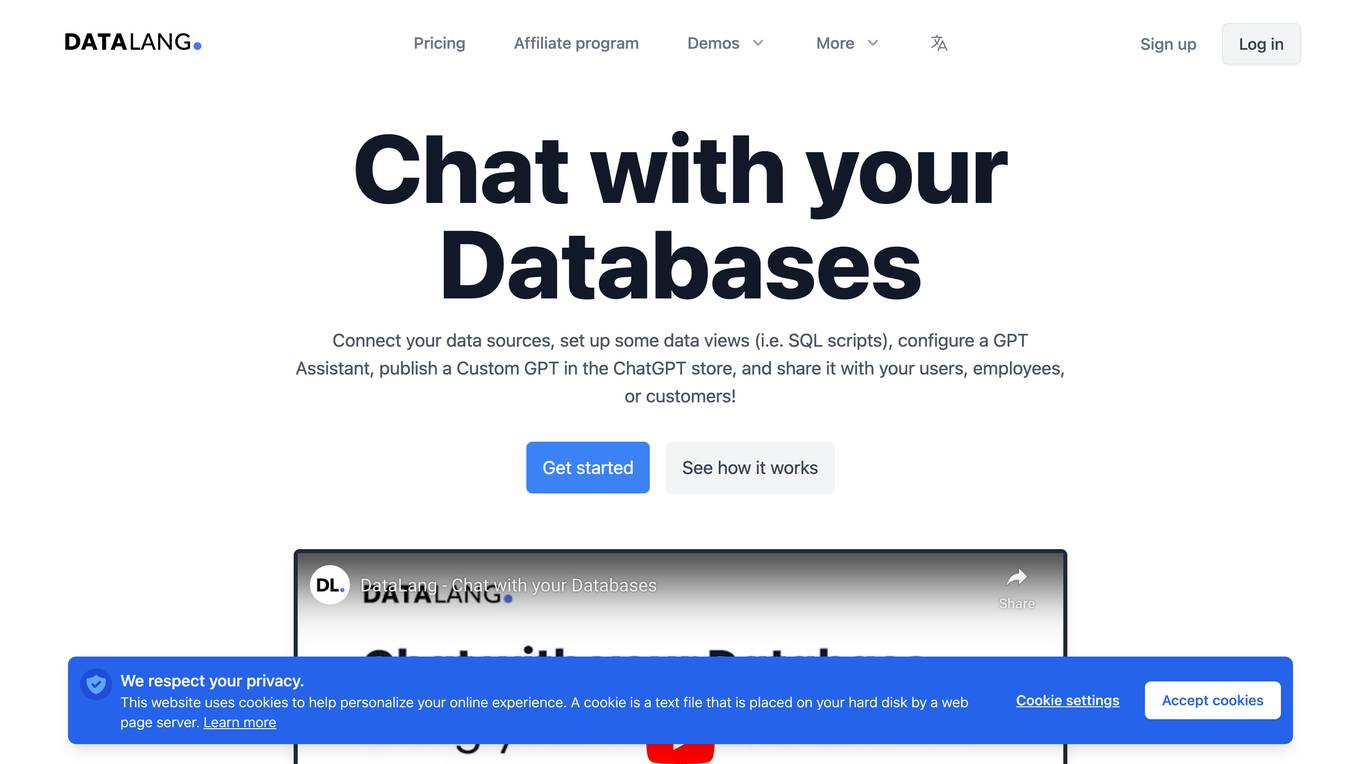
DataLang
DataLang is a tool that allows you to chat with your databases, expose a specific set of data (using SQL) to train GPT, and then chat with it in natural language. You can also use DataLang to automatically make your SQL views available via API, share it with your privately users, or make it public.

EroPlay.ai
EroPlay.ai is an AI-powered platform that offers users the opportunity to engage in erotic roleplay with virtual companions. The website uses advanced artificial intelligence technology to create realistic and interactive scenarios for users to explore their fantasies in a safe and controlled environment. With EroPlay.ai, users can interact with AI-powered characters and immerse themselves in a unique and personalized roleplaying experience.
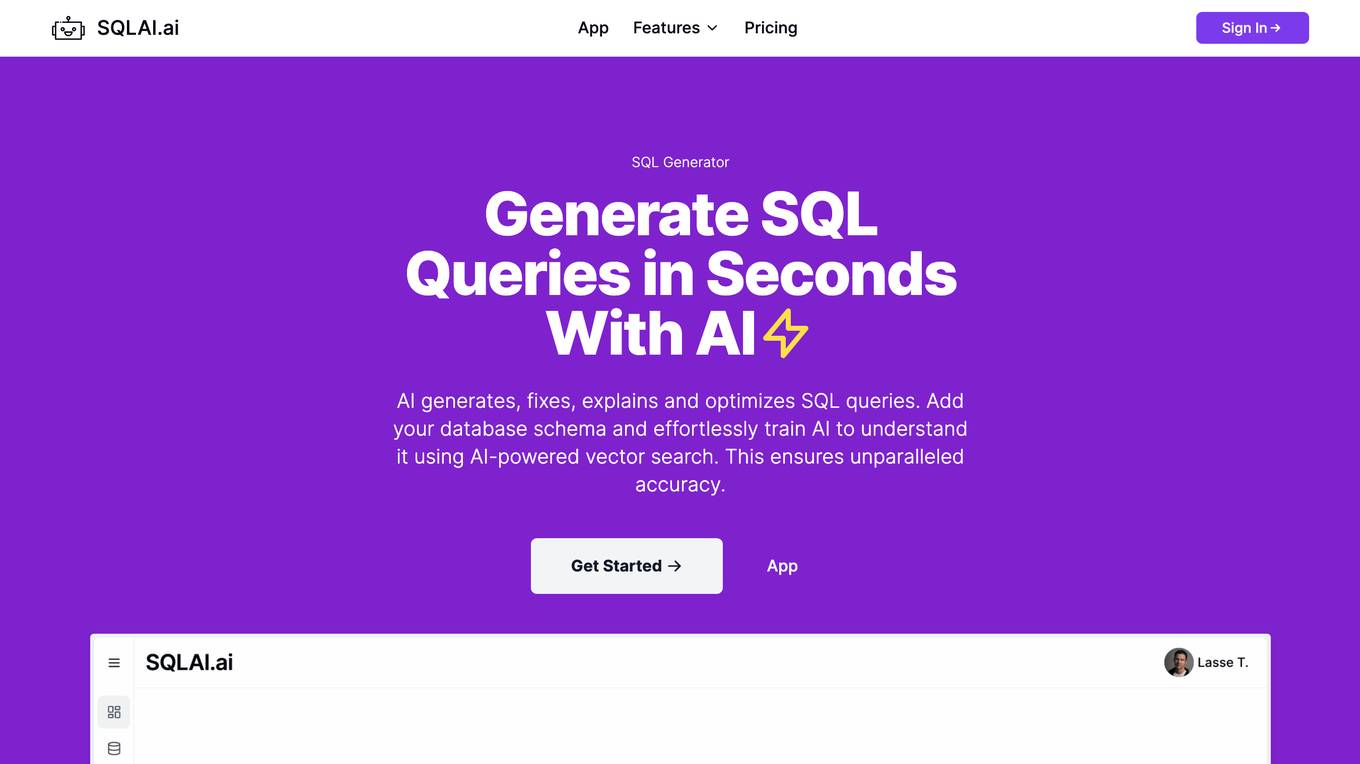
SQLAI.ai
SQLAI.ai is a powerful SQL multi-tool that utilizes AI to generate, fix, explain, and optimize SQL queries and databases. It empowers users to effortlessly create complex SQL queries using everyday language, optimize queries for better performance, fix syntax errors with ease, and gain a deeper understanding of SQL queries through AI-powered explanations. Additionally, SQLAI.ai enables users to train AI on their database schema, ensuring unparalleled accuracy in AI-generated queries and optimizations.
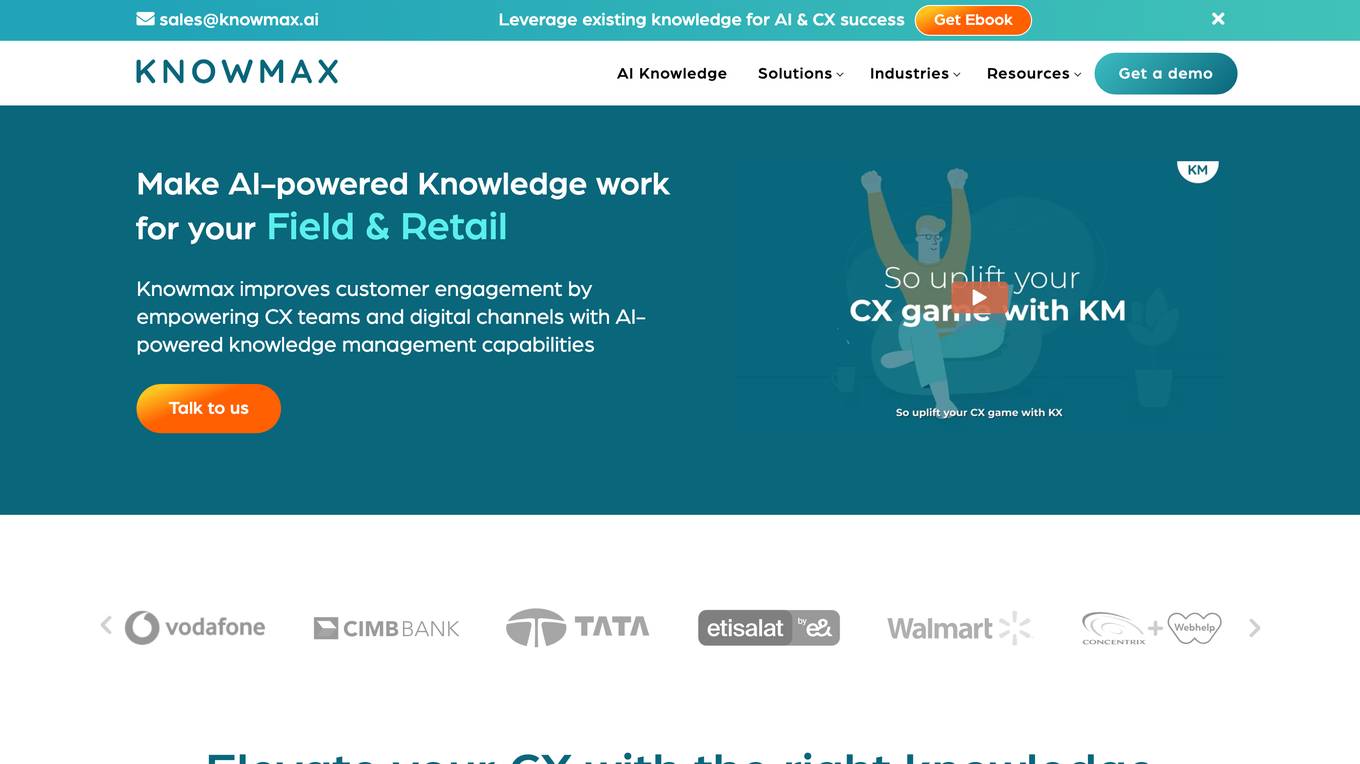
Knowmax
Knowmax is an omnichannel knowledge management platform that helps businesses improve customer experience (CX) by providing AI-powered knowledge management capabilities. It offers a range of features such as a Google-like search engine for accessing relevant knowledge across touchpoints, no-code cognitive decision trees for creating simple and mistake-proof customer service actions, visual how-to guides for minimizing repetitive explanations, and an omnichannel-ready knowledge base for creating self-help guides. Knowmax also integrates with CRM systems to deliver faster and personalized resolutions at scale. It is used by businesses in various industries, including telecom, banking, BPO, insurance, e-commerce, media & ISP, healthcare, travel, automobiles, and utilities.
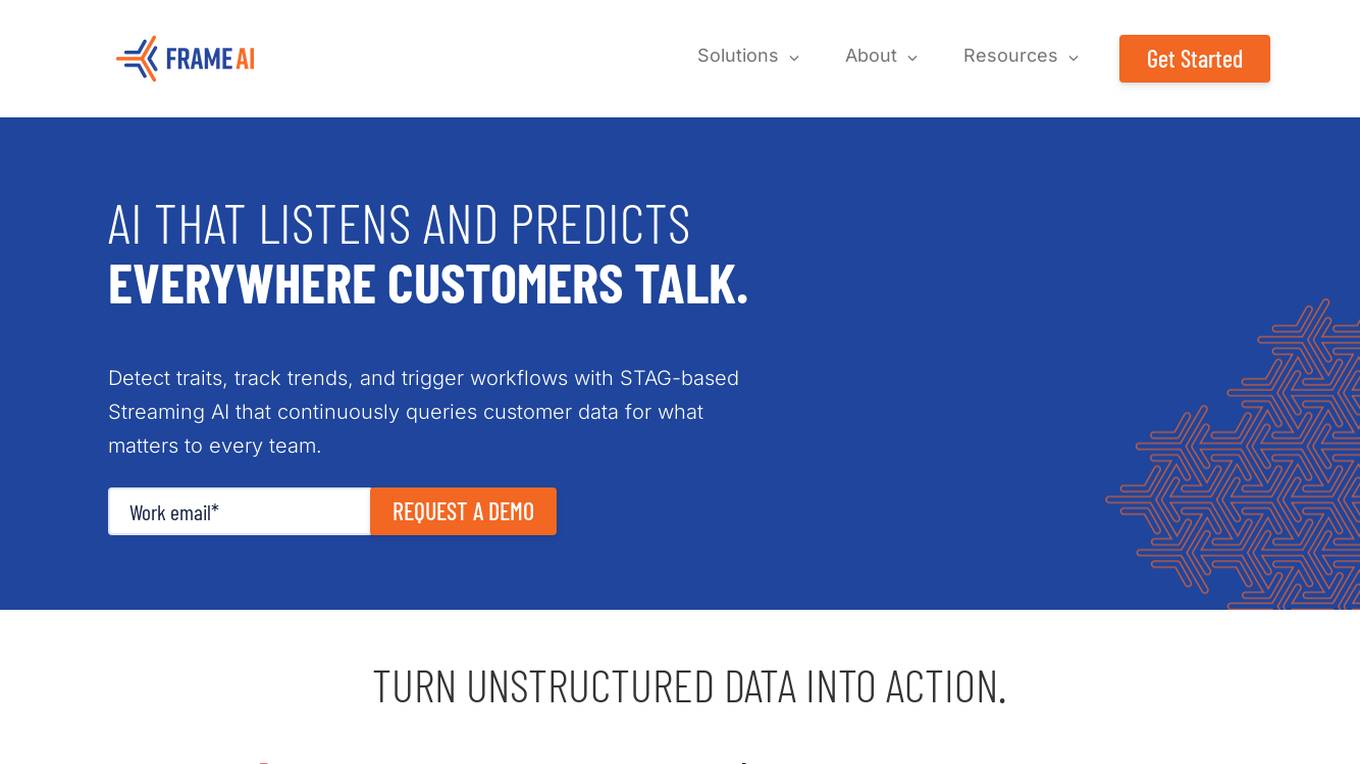
Frame AI
Frame AI is a premier Streaming AI Platform powered by STAG, designed to provide proactive insights and tools for every team by continuously querying customer data to detect traits, track trends, and trigger workflows. The platform turns unstructured data into actionable insights, helping teams stay ahead of risks and opportunities. Frame AI's architecture autonomously queries customer data based on user objectives, activating inside existing business tools to provide real-time customer data. With features like enrichments, triggers, alerts, and insights, Frame AI enables better decisions faster by combining predictive signals in customer text into task-specific scores. The platform is suitable for marketing, CX, support, and product teams, offering real-time usability feedback, demographic and psychographic trait detection, and secure data handling. Frame AI is SOC 2 Type II certified and HIPAA compliant, with a team of AI experts leading the development of AI solutions for various organizations.

IBM Watsonx
IBM Watsonx is an enterprise studio for AI builders. It provides a platform to train, validate, tune, and deploy AI models quickly and efficiently. With Watsonx, users can access a library of pre-trained AI models, build their own models, and deploy them to the cloud or on-premises. Watsonx also offers a range of tools and services to help users manage and monitor their AI models.

Outlier AI
Outlier AI is a platform that connects subject matter experts to help build the world's most advanced Generative AI. It allows experts to work on various projects from generating training data to evaluating model performance. The platform offers flexibility, allowing contributors to work from home on their own schedule. Outlier AI aims to redefine how AI learns by leveraging the expertise of domain specialists across different fields.
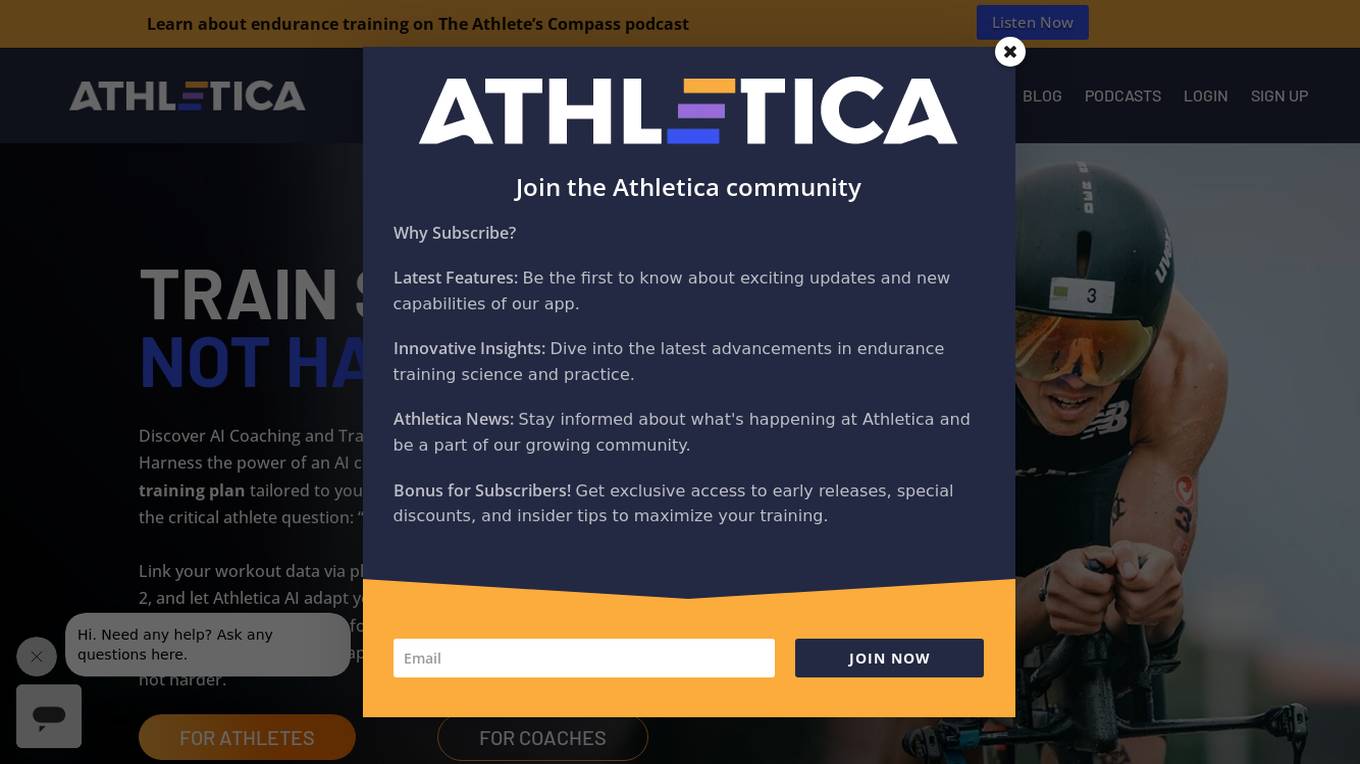
Athletica AI
Athletica AI is an AI-powered athletic training and personalized fitness application that offers tailored coaching and training plans for various sports like cycling, running, duathlon, triathlon, and rowing. It adapts to individual fitness levels, abilities, and availability, providing daily step-by-step training plans and comprehensive session analyses. Athletica AI integrates seamlessly with workout data from platforms like Garmin, Strava, and Concept 2 to craft personalized training plans and workouts. The application aims to help athletes train smarter, not harder, by leveraging the power of AI to optimize performance and achieve fitness goals.

Backend.AI
Backend.AI is an enterprise-scale cluster backend for AI frameworks that offers scalability, GPU virtualization, HPC optimization, and DGX-Ready software products. It provides a fast and efficient way to build, train, and serve AI models of any type and size, with flexible infrastructure options. Backend.AI aims to optimize backend resources, reduce costs, and simplify deployment for AI developers and researchers. The platform integrates seamlessly with existing tools and offers fractional GPU usage and pay-as-you-play model to maximize resource utilization.
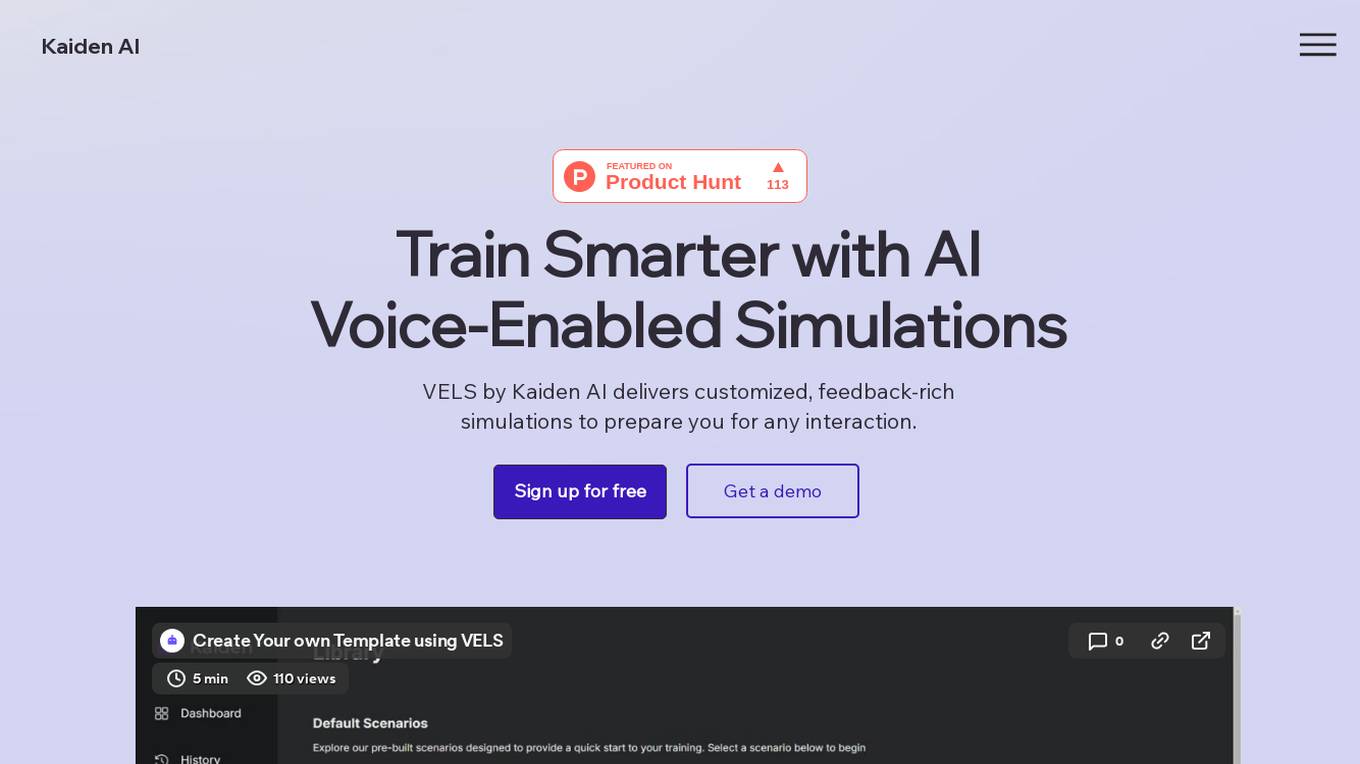
Kaiden AI
Kaiden AI is an AI-powered training platform that offers personalized, immersive simulations to enhance skills and performance across various industries and roles. It provides feedback-rich scenarios, voice-enabled interactions, and detailed performance insights. Users can create custom training scenarios, engage with AI personas, and receive real-time feedback to improve communication skills. Kaiden AI aims to revolutionize training solutions by combining AI technology with real-world practice.

Endurance
Endurance is a platform designed for runners, swimmers, and cyclists to engage in group training activities with friends or local communities. Users can create or join teams, share structured workouts, and benefit from collective motivation and accountability. The platform aims to make training fun and effective by leveraging the power of group workouts and social connections.
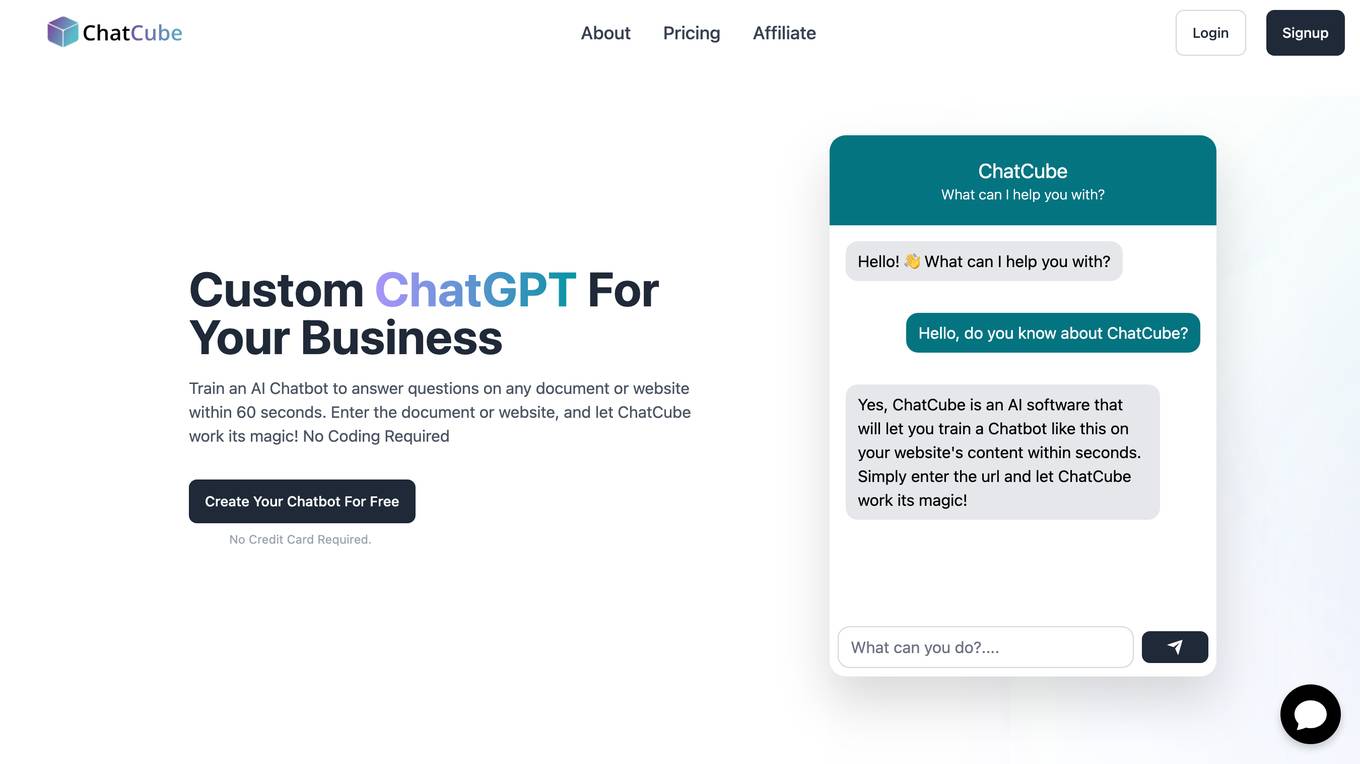
ChatCube
ChatCube is an AI-powered chatbot maker that allows users to create chatbots for their websites without coding. It uses advanced AI technology to train chatbots on any document or website within 60 seconds. ChatCube offers a range of features, including a user-friendly visual editor, lightning-fast integration, fine-tuning on specific data sources, data encryption and security, and customizable chatbots. By leveraging the power of AI, ChatCube helps businesses improve customer support efficiency and reduce support ticket reductions by up to 28%.

Workout Tools
Workout Tools is an AI-powered personal trainer that helps you train smarter and reach your fitness goals faster. It takes into account different parameters, such as your physics, the type of workout you're interested in, your available equipment, and comes up with a suggested workout. Don't like the workout? Just generate another one. It's that simple.
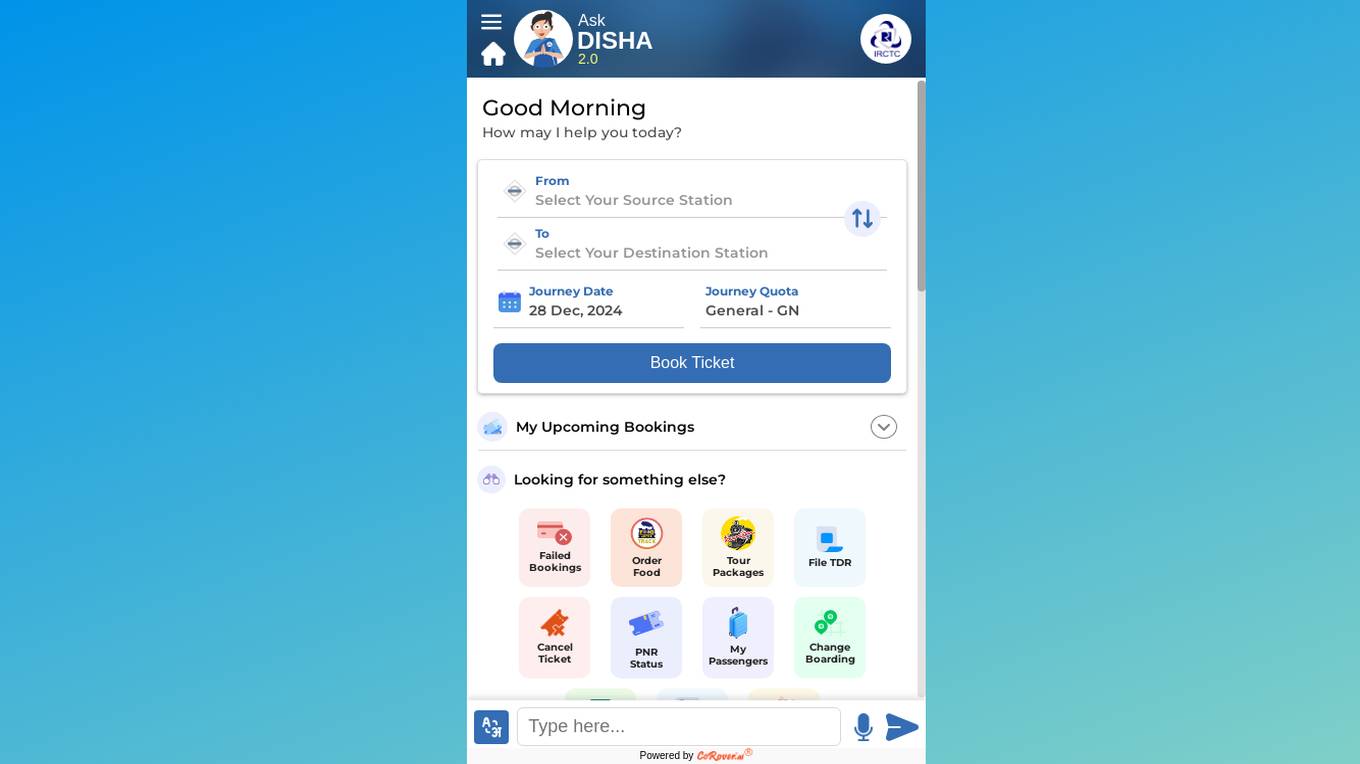
CoRover.ai
CoRover.ai is an AI-powered chatbot designed to help users book train tickets seamlessly through conversation. The chatbot, named AskDISHA, is integrated with the IRCTC platform, allowing users to inquire about train schedules, ticket availability, and make bookings effortlessly. CoRover.ai leverages artificial intelligence to provide personalized assistance and streamline the ticket booking process for users, enhancing their overall experience.
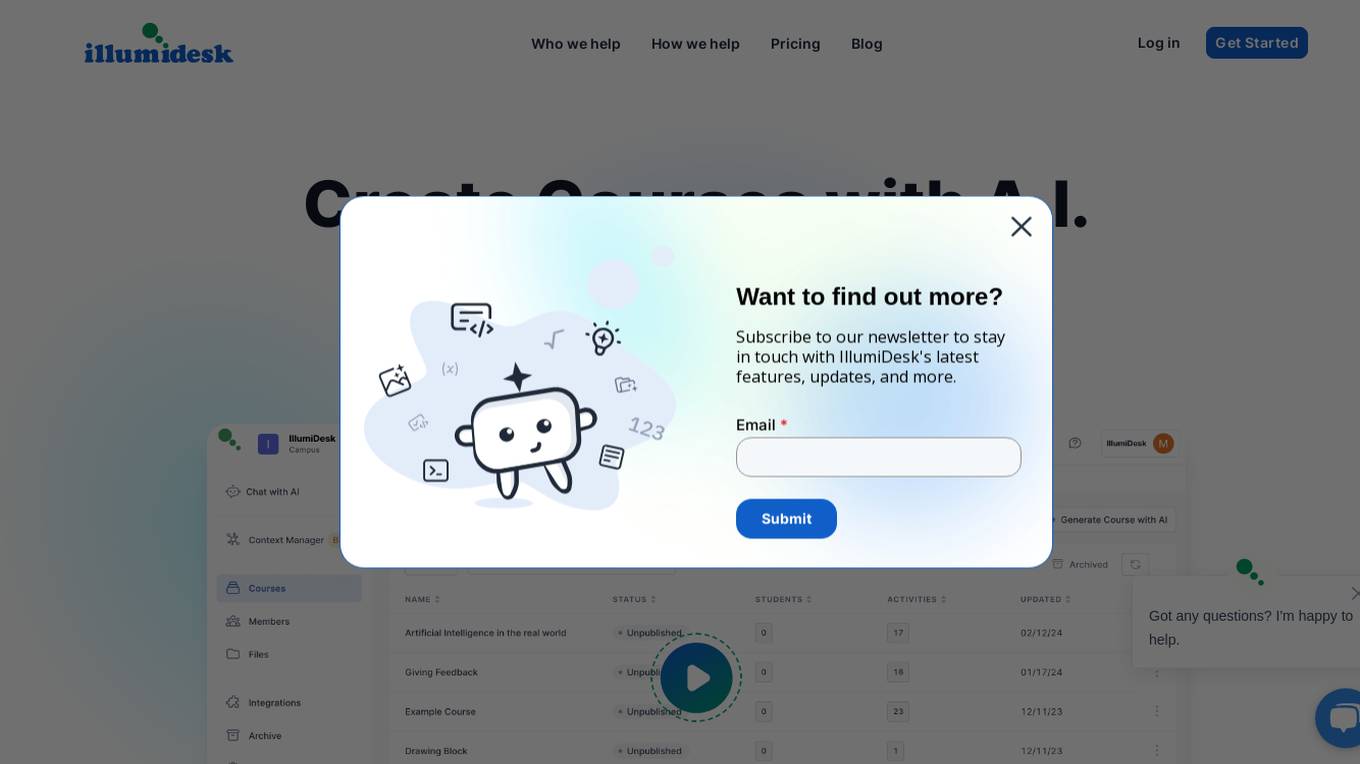
IllumiDesk
IllumiDesk is a generative AI platform for instructors and content developers that helps teams create and monetize content tailored 10X faster. With IllumiDesk, you can automate grading tasks, collaborate with your learners, create awesome content at the speed of AI, and integrate with the services you know and love. IllumiDesk's AI will help you create, maintain, and structure your content into interactive lessons. You can also leverage IllumiDesk's flexible integration options using the RESTful API and/or LTI v1.3 to leverage existing content and flows. IllumiDesk is trusted by training agencies and universities around the world.
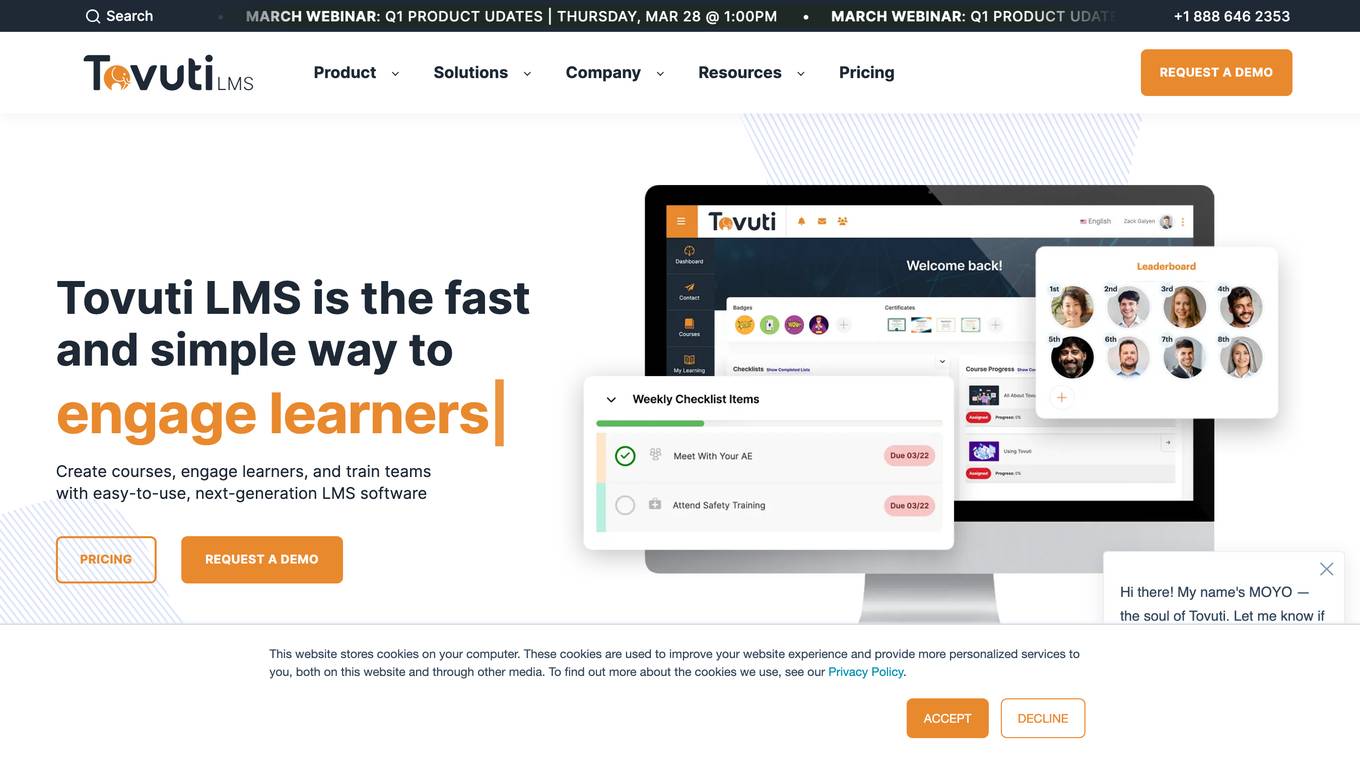
Tovuti LMS
Tovuti LMS is an adaptive, people-first learning platform that helps organizations create engaging courses, train teams, and track progress. With its easy-to-use interface and powerful features, Tovuti LMS makes learning fun and easy. Tovuti LMS is trusted by leading organizations around the world to provide their employees with the training they need to succeed.

Chatbond
Chatbond is an AI chatbot builder that enables users to create customized chatbots for websites and messaging platforms without the need for coding skills. With Chatbond, users can design conversational interfaces, integrate AI capabilities, and deploy chatbots to enhance customer engagement and streamline communication processes. The platform offers a user-friendly interface with drag-and-drop functionality, pre-built templates, and analytics tools to monitor chatbot performance and optimize interactions. Chatbond empowers businesses to automate customer support, lead generation, and sales processes, improving efficiency and scalability.

Teachable Machine
Teachable Machine is a web-based tool that makes it easy to create custom machine learning models, even if you don't have any coding experience. With Teachable Machine, you can train models to recognize images, sounds, and poses. Once you've trained a model, you can export it to use in your own projects.
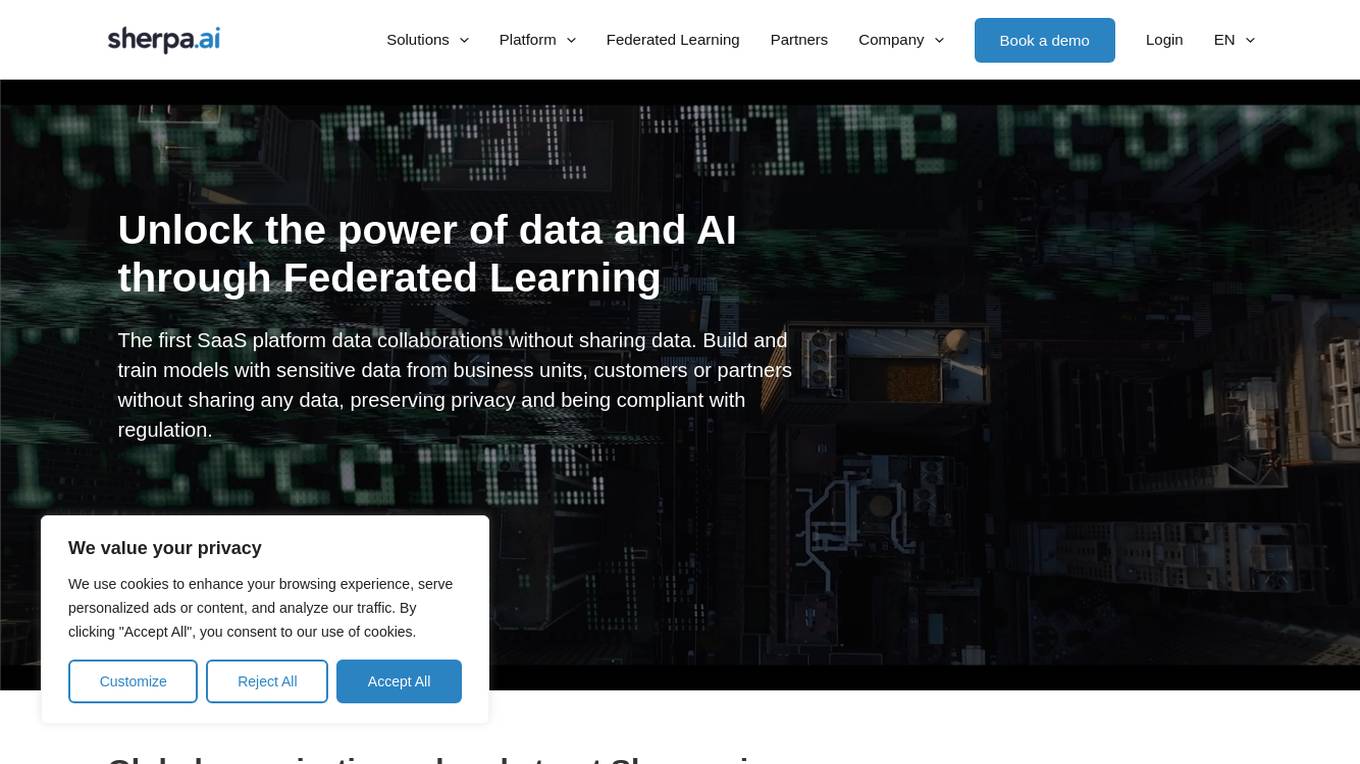
Sherpa.ai
Sherpa.ai is a SaaS platform that enables data collaborations without sharing data. It allows businesses to build and train models with sensitive data from different parties, without compromising privacy or regulatory compliance. Sherpa.ai's Federated Learning platform is used in various industries, including healthcare, financial services, and manufacturing, to improve AI models, accelerate research, and optimize operations.
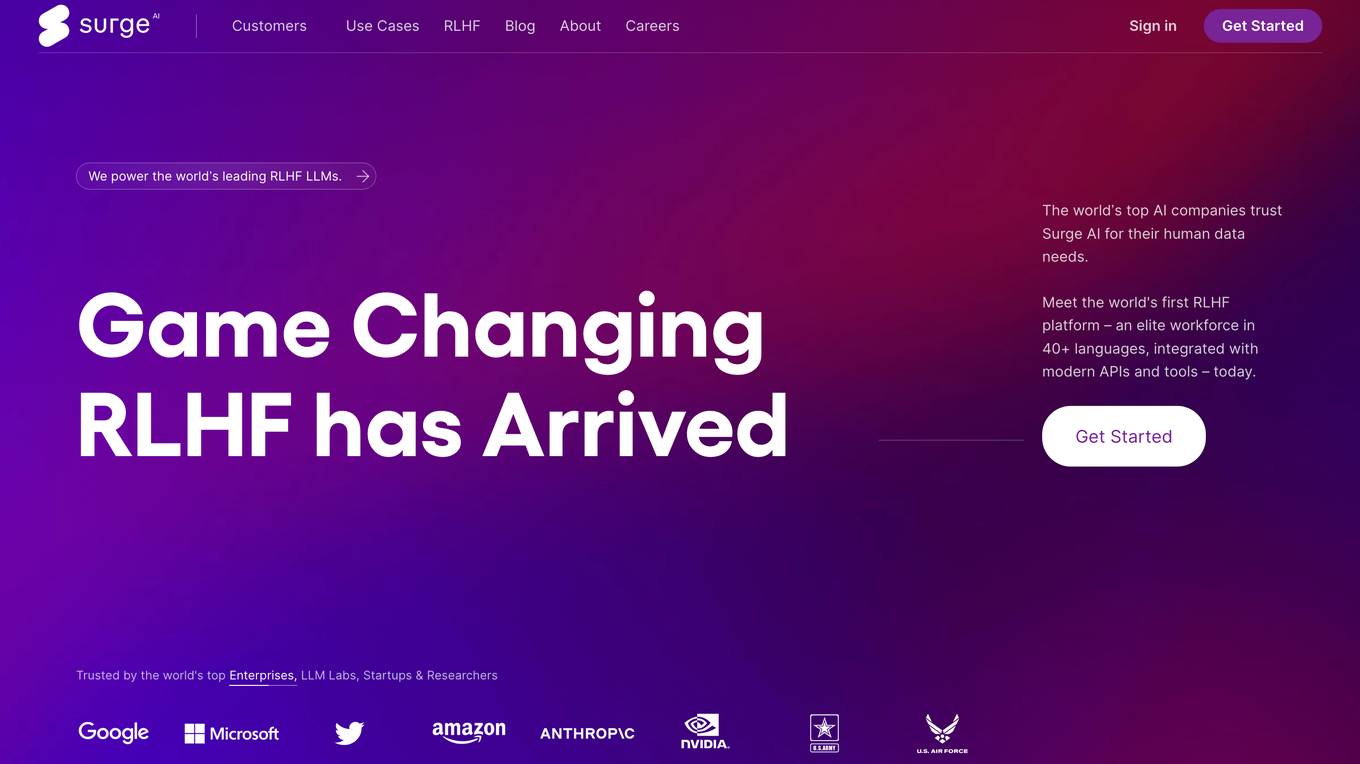
Surge AI
Surge AI is a data labeling platform that provides human-generated data for training and evaluating large language models (LLMs). It offers a global workforce of annotators who can label data in over 40 languages. Surge AI's platform is designed to be easy to use and integrates with popular machine learning tools and frameworks. The company's customers include leading AI companies, research labs, and startups.
0 - Open Source AI Tools
20 - OpenAI Gpts
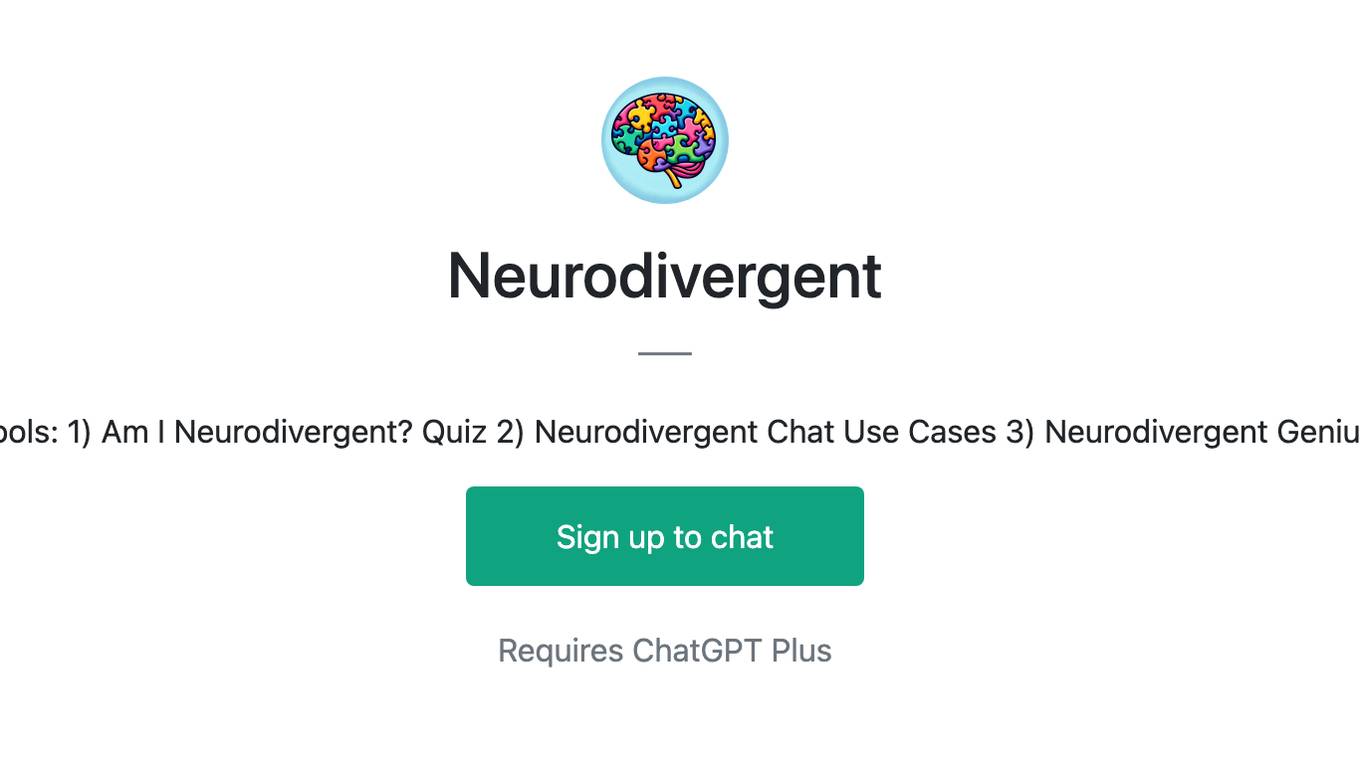
Neurodivergent
Neurodivergent tools: 1) Am I Neurodivergent? Quiz 2) Neurodivergent Chat Use Cases 3) Neurodivergent Genius Trait Explorer.

Chimerai
HybridCreator GPT crafts unique animal hybrids with emphasis weighting for traits. Input animals and desired trait balance for imaginative, detailed creations.

How to Train a Chessie
Comprehensive training and wellness guide for Chesapeake Bay Retrievers.
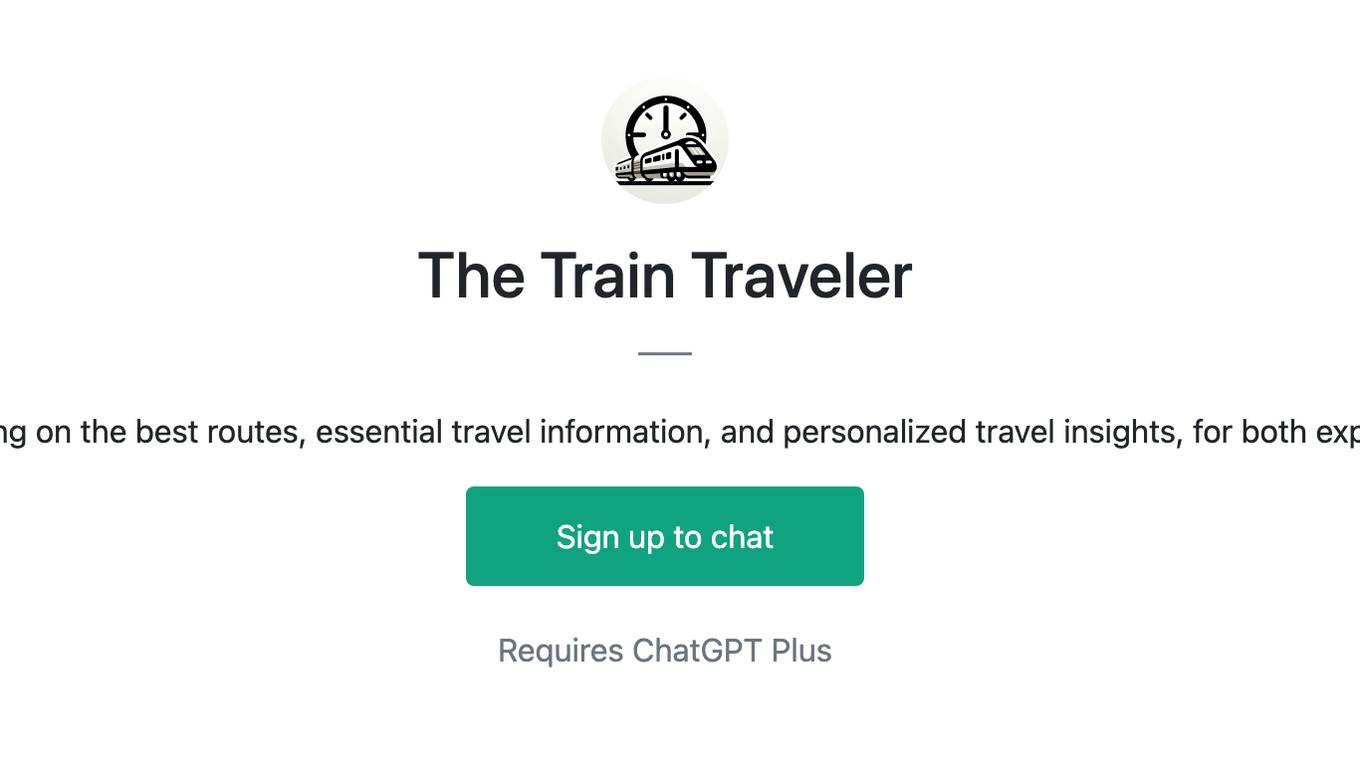
The Train Traveler
Friendly train travel guide focusing on the best routes, essential travel information, and personalized travel insights, for both experienced and novice travelers.

How to Train Your Dog (or Cat, or Dragon, or...)
Expert in pet training advice, friendly and engaging.
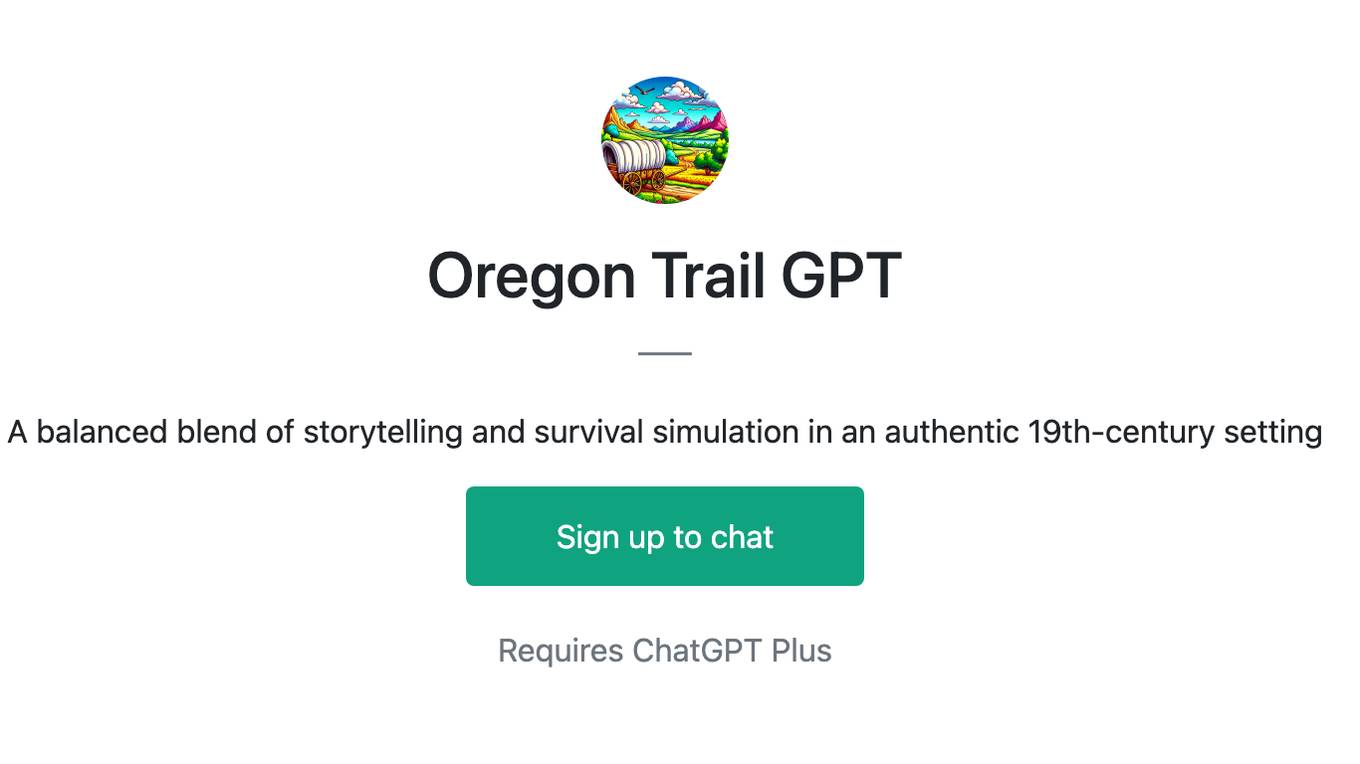
Oregon Trail GPT
A balanced blend of storytelling and survival simulation in an authentic 19th-century setting
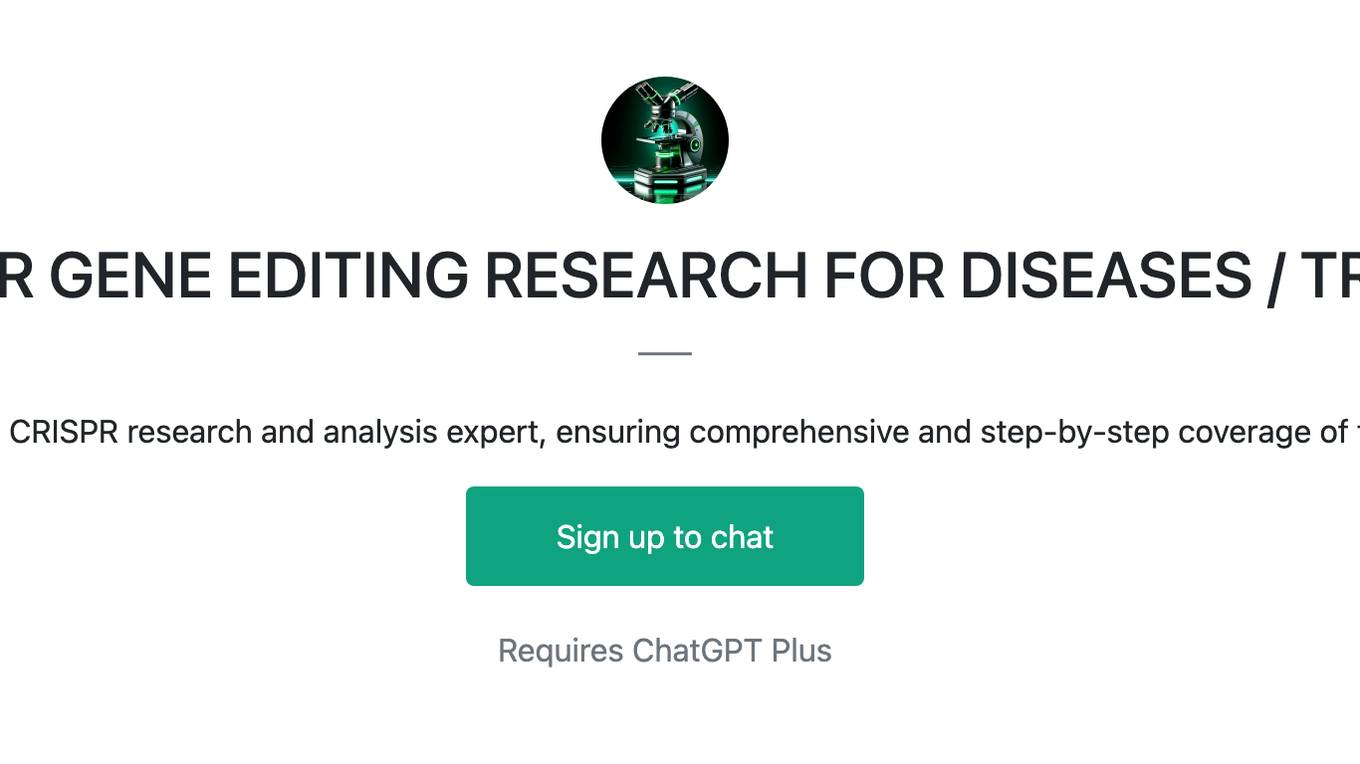
CRISPR GENE EDITING RESEARCH FOR DISEASES / TRAITS
In-depth CRISPR research and analysis expert, ensuring comprehensive and step-by-step coverage of topics.
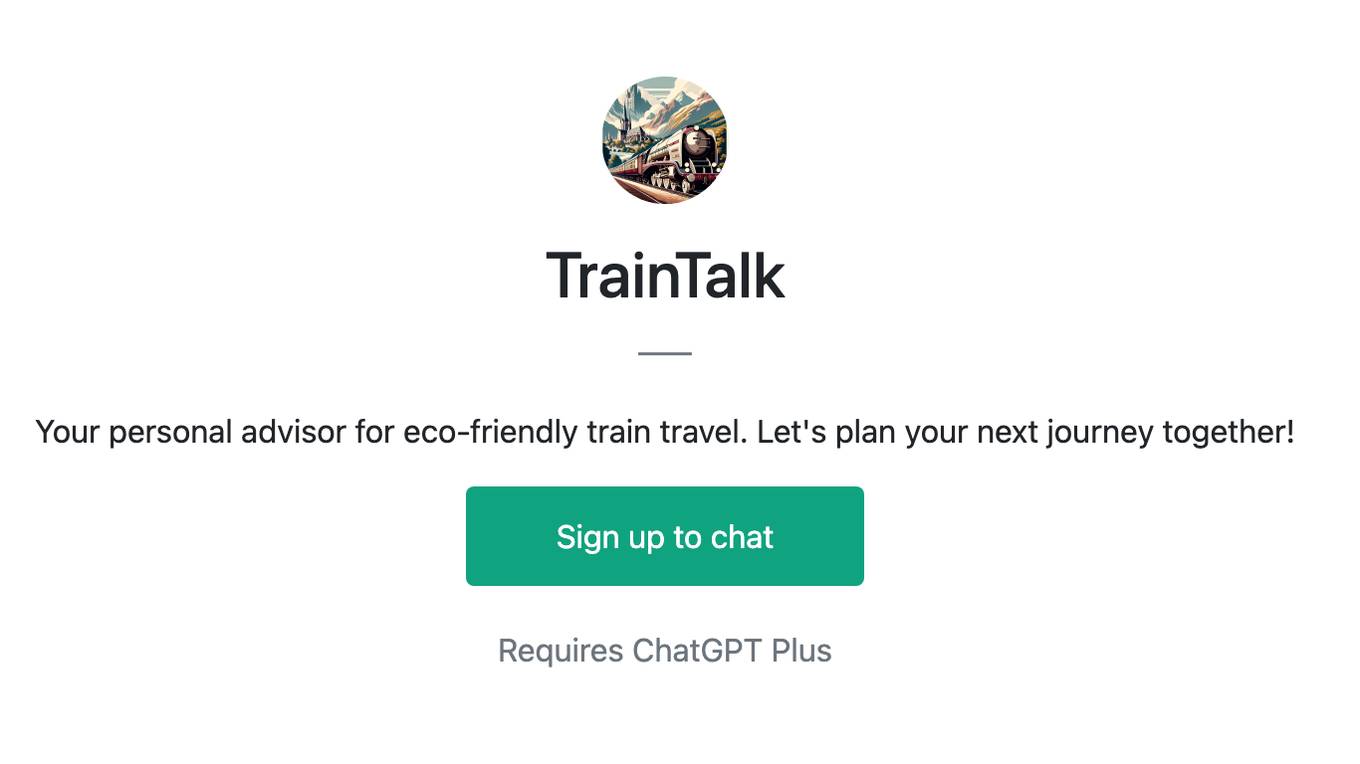
TrainTalk
Your personal advisor for eco-friendly train travel. Let's plan your next journey together!
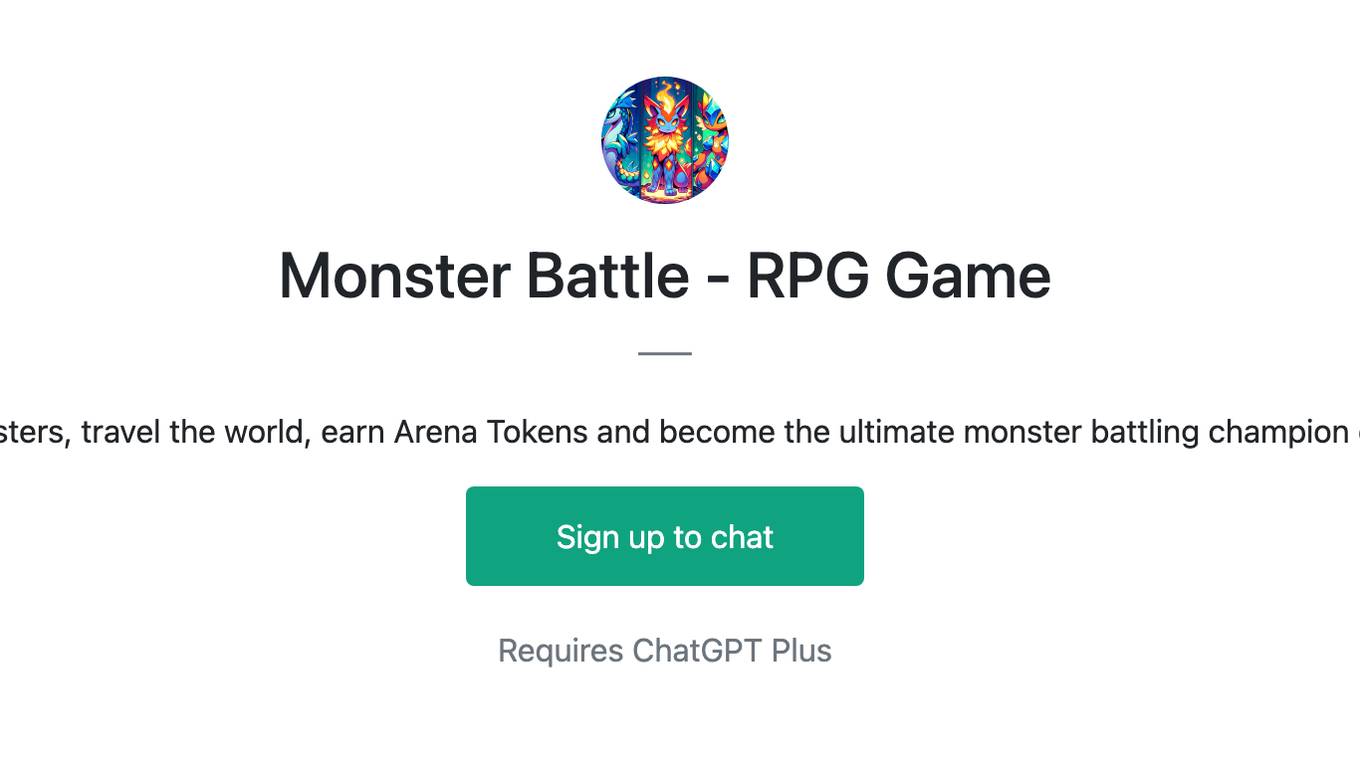
Monster Battle - RPG Game
Train monsters, travel the world, earn Arena Tokens and become the ultimate monster battling champion of earth!
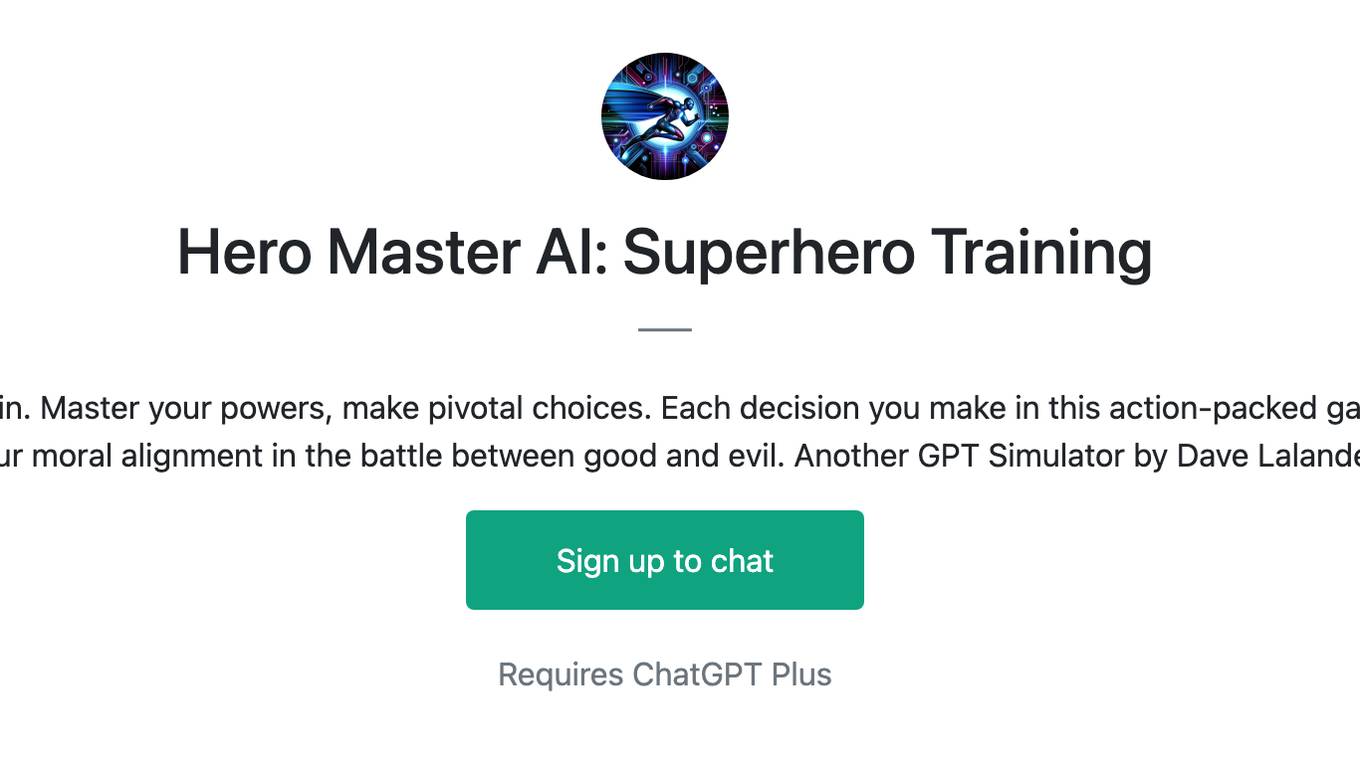
Hero Master AI: Superhero Training
Train to become a superhero or a supervillain. Master your powers, make pivotal choices. Each decision you make in this action-packed game not only shapes your abilities but also your moral alignment in the battle between good and evil. Another GPT Simulator by Dave Lalande

Pytorch Trainer GPT
Your purpose is to create the pytorch code to train language models using pytorch

Bot Psycho - Le pervers narcissique.
Je te parle des pervers narcissique. Je t'informe de leurs traits et de leur comportement. Je t'aide à reconnaitre les signes d'une relation toxique.

